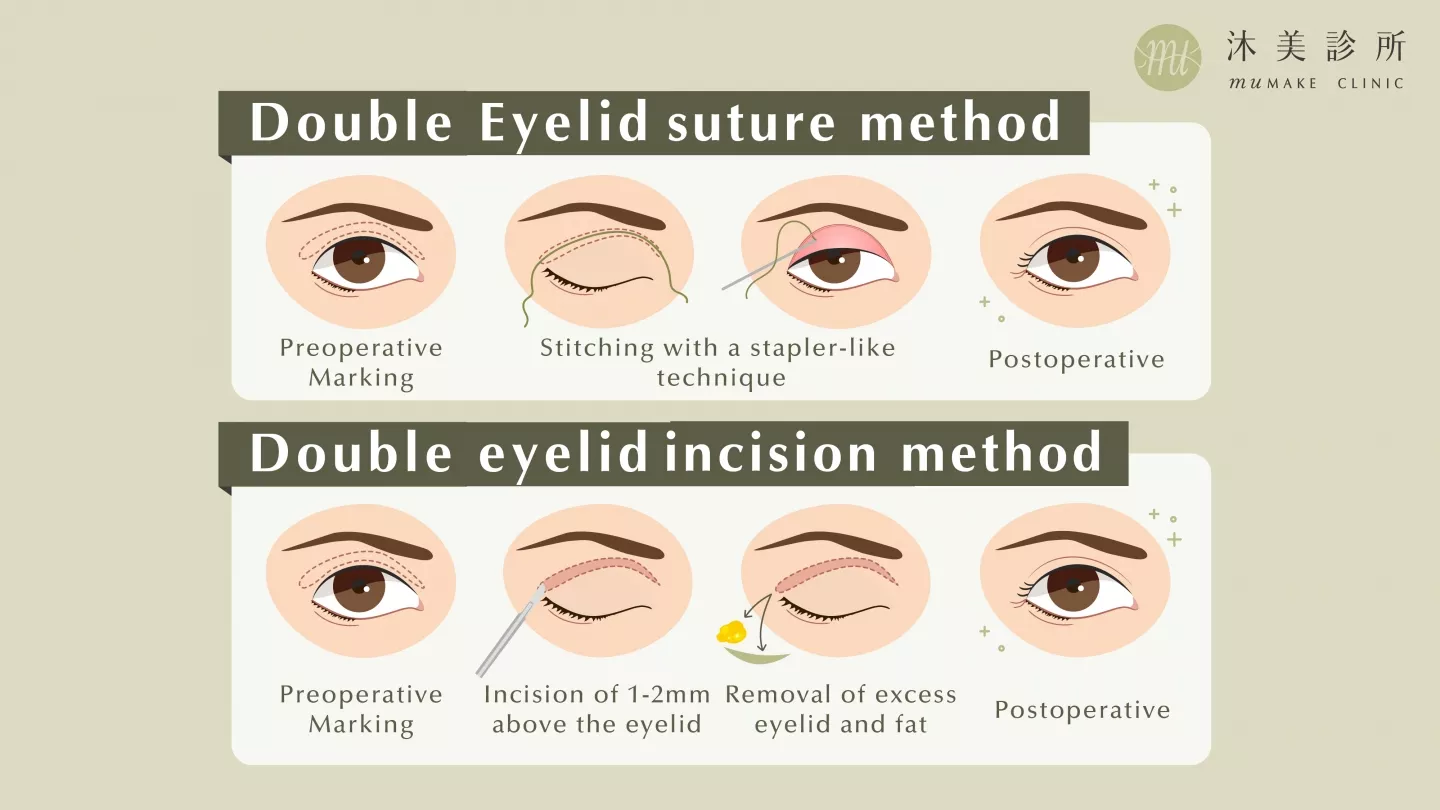Double eyelid surgery is a long-established plastic surgery procedure. While it may appear simple, the eyes are often referred to as the "windows to the soul" and are a crucial facial feature that significantly influences overall facial balance and aesthetics. Therefore, it is essential to entrust this procedure to experienced plastic surgeons.
Principles of Double Eyelid Surgery
What many people may not fully grasp about double eyelid surgery is whether they are better suited for the "suture method" or "incision method" method. Since each individual's situation is unique, it is strongly recommended to seek detailed consultation from a plastic surgeon to determine the most suitable surgical approach for one's specific needs.

Suture blepharoplasty is Suitable for:
- Those with thin eyelids and minimal sagging.
- Individuals with minimal orbital fat and indistinct eyelid folds.
- Those with existing double eyelids that are asymmetrical or uneven in size.
- Those with monolids.
Incisional blepharoplasty is Suitable for:
- People with puffiness, eyelid swelling, and thicker orbital fat (often requiring additional treatments).
- Individuals with sagging eyelids (common in older individuals).
- Those with eyelid entropion (inward turning of the eyelid).
- Those with inverted eyelashes.
Which Treatment Should I Choose? Suture or Incisional method?

Witness
※The case photos in this text are clinic's pre- and post-operative photos, used for treatment explanation or supplementary educational information. They are for reference only. According to the announcement of the Ministry of Health and Welfare, the case records obtained patient consent and are not medical advertisements.












Q:Is there any risk associated with double eyelid surgery?
A:All surgeries carry some level of risk, so it's essential to have thorough communication with your surgeon before the procedure. Potential complications following double eyelid surgery may include subcutaneous hematoma and wound infection. However, small amounts of subcutaneous hematoma are normal and will gradually be absorbed by the body without causing significant problems. At Mu Mei Surgery Room, we use a HEPA filtration system on the ceiling and seamless walls to significantly reduce the risk of infection. We also remind our patients to strictly follow post-operative instructions, rest well, and allow the wound to heal. If an infection occurs, please seek immediate medical attention for early treatment.
Q:What are the preoperative considerations?
(1) Patients with a tendency to scar easily or have edema-prone conditions should inform the surgeon before the procedure.
(2) Those on medication or with cardiovascular issues should consult a physician first.
(3) Avoid smoking and alcohol consumption one week before the surgery.
(4) Refrain from taking vitamin E, blood-activating traditional Chinese medicine, and aspirin.
(5) Assess for dry eye syndrome.
(6) Do not wear makeup on the day of surgery and remove nail polish.
(7) Patients undergoing general anesthesia should fast for 8 hours before the surgery, while those receiving local anesthesia are not subject to this restriction.
(8) Remove all jewelry before the surgery.
Q:What should I do postoperatively?
(1) Keep the wound dry as per the medical instructions and maintain the cleanliness of dressings.
(2) Use alternating hot and cold compresses to reduce eye swelling.
(3) Engage in eye muscle exercises.
(4) Consume a light diet, avoid alcohol, and foods that promote blood circulation.
(5) Avoid using skincare products containing heavy metals to prevent excessive scarring.




 Booking Now
Booking Now  Messenger
Messenger  LINE
LINE 


